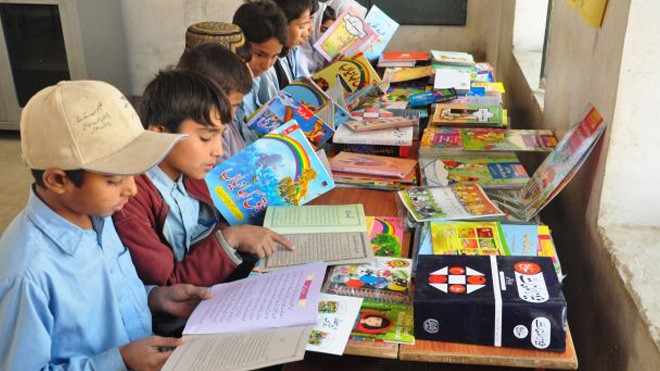
Eyesight, hearing and speech incapacities ever so often hamper learning in schools

Back in the glory days of missionary schools, height, weight and eyesight check-ups were a routine. A file for every schoolchild was maintained and updated. I still remember two children in my class who weighed between 50-55 pounds in class 10 and were also petite. The parents would be apprised of their slow growth after every check-up. There is no such practice even among the best of schools today, what to talk of public schools.
Today, many schoolchildren suffer silently and lose interest in studies eventually. If they are lucky, the teachers detect their eyesight or hearing problems, and are asked to take the front seat. Children that stammer become a butt of jokes at school. The earlier such disabilities are detected and corrective measures taken, the better - for they may affect their confidence and reduce their overall life chances.
We come across children who have trouble with reading accurately and fluently. When they can’t read right, comprehension and writing problems follow. This is dyslexia, which the film ‘Taaray Zameen Par’ so aptly highlights. Dyslexia is not a disease. The inability to read words correctly is by birth and can be managed with special instruction and support. Early intervention to address reading problems is important. Children are labelled dull and stupid if they cannot read well while they may be very bright otherwise. Teachers should be trained to detect this and help the child in time.
Read also: Editorial
Talking to teachers and students reveals that 50 per cent of the students from class 6 to 9 find Math difficult. A senior secondary school teacher says, "It is when they don’t practice. These are children who use handbooks (khulasay). Even if they go for tuition they copy from a handbook and that is how they do their homework. Math is learning by doing and our children seem to escape that. Unfortunately, parents too are weak in Math." But their real problem with Math hardly gets identified.
A senior subject specialist at a government higher secondary school in Lahore says, "Government schools have many very poor, ill-nourished children who are home-based workers. There are days they don’t come to school because they have to meet a deadline at home which will bring in money crucial to their family."
"But only through education can you change your status," she says. "There are children whom I counsel and there are those whose income increased from Rs5000 per month to Rs22,000 after completing intermediate."